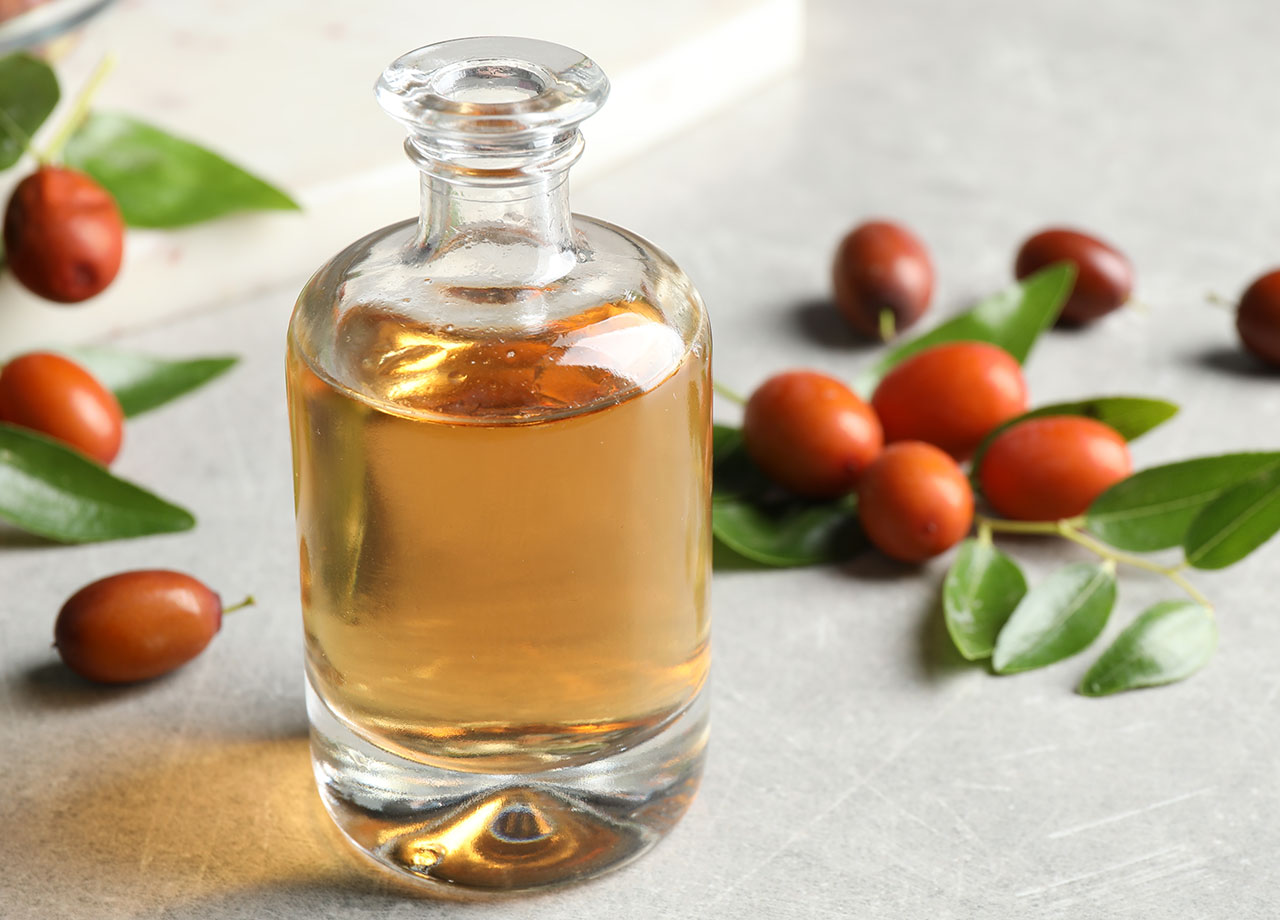
Jojoba Oil
Jojoba oil has natural anti-inflammatory properties that can reduce scalp irritation and help promote new growth. Not only is it hydrating and soothing, but it helps balance sebum production to control excess oils and contains vitamin E that nourishes the scalp and hair follicles.
Argan Oil
Argan oil contains a bounty of essential fatty acids like oleic and linoleic acids that keep the scalp well moisturized. These fats also help boost your hair’s elasticity for less breakage and split ends. It has anti-inflammatory properties can help combat scalp irritation and boosts blood circulation.
Rosemary Oil
Can you say “major blood circulation booster?” Rosemary oil may feel a little tingly on the scalp — that’s a sign that’s it’s helping to promote blood flow to the hair follicles for healthier growth. Some studies have even shown that rosemary oil help reduce dihydrotestosterone (DHT) levels, which are linked to hair loss. Be careful not to apply rosemary oil without first diluting it in a carrier oil — it can be far too potent and irritating to stand alone.
Peppermint
Yet another stimulating oil, peppermint oil is going to cause a tingle on the scalp that indicates it’s boosting blood flow to the follicles. Like rosemary oil, peppermint oil should never be applied directly to the scalp or skin because it can be too irritating. Always mix it with a carrier oil, such as argan, jojoba, or coconut oil.
Coconut Oil
Coconut oil is deeply hydrating and perfect if you suffer from a dry scalp or dandruff, which can clog hair follicles and affect proper hair growth. It also strengthens hair, increases shine, and helps reduce protein loss. Apply it as a conditioner or mask and then wash it out.
Clarifying Shampoo
Clarifying shampoos sometimes get a bad reputation because, when used too often, they can dry out the scalp and make your hair look lifeless and lackluster. But if you are suffering from product buildup on your scalp, which can clog pores and interfere with hair growth, using a clarifying shampoo once in a while will remove excess oils, sebum, and debris and help keep your scalp healthy.
Volumizing Shampoo
Don’t just buy any shampoo on the shelf — read the labels carefully and make sure you choose one that says “volumizing.” These shampoos contain specific ingredients that can increase the density of each hair strand and make it look and feel thicker.
Shampoos With Keratin
Keratin is a protein that strengthens your hair and helps promote healthy hair growth. Choosing shampoos that contain keratin can help your hair look more voluminous. This is usually a major ingredient in volumizing shampoos.
Gentle Shampoos
Choosing a shampoo that is labeled gentle can help keep your hair and scalp moisturized while balancing sebum production. Harsh shampoos with drying ingredients may cause more hair fallout and split ends, so take care to have a gentle hand with your hair.
Don’t Shampoo Every Day
Overdoing it by shampooing your hair daily often strips your scalp’s natural oils and dries out your scalp, which make it more prone to shedding. You may find that if you skip a day or even two and let your hair rest, your scalp will adjust accordingly and won’t be as greasy over time.
Use Lightweight Conditioner
Even though this isn’t a shampoo tip, it needs to be said: overconditioning your hair is an actual thing that can make your hair look flat and oily. Your hair simply doesn’t need a heavy hair mask every day, nor does it require the thickest conditioners at all times. A once-a-week mask is a great idea, but for every-other-day cleansing and conditioning, try a lightweight conditioner that offer manageability and hydration without weighing your stands and roots down.


